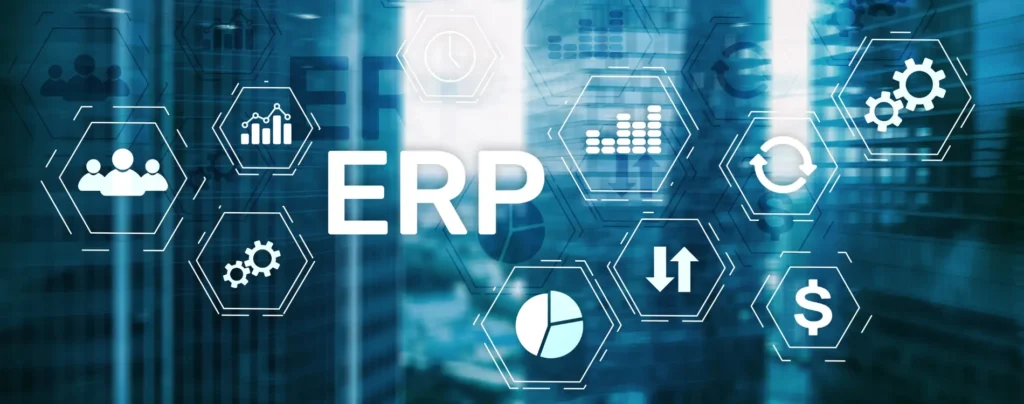Enterprise Resource Planning (ERP) systems have become a fundamental tool for modern businesses looking to streamline their operations, enhance productivity, and maintain a competitive edge in an increasingly complex market. An ERP system integrates different business processes into a single, unified system, covering everything from finance and accounting to human resources, manufacturing, supply chain, and customer relationship management. https://noticviralweb.blogspot.com/2024/04/erp-planificacion.html
However, selecting the right ERP system can be a daunting task, given the myriad of available options, the complexity of implementation, and the long-term impact on business performance. This article will guide you through the process of selecting the best ERP system for your organization, covering essential considerations, key features to look for, and tips for ensuring a smooth implementation. https://noticviralweb.blogspot.com/2024/04/erp-planificacion.html
What is an ERP System?
Before delving into how to choose the right ERP, it’s important to understand what an ERP system is and why it matters to businesses.
An Enterprise Resource Planning (ERP) system is a software solution designed to manage and automate a company’s core processes. These processes typically include:
- Finance and Accounting: Managing budgets, financial transactions, and generating reports.
- Human Resources: Handling employee data, payroll, and benefits management.
- Supply Chain Management: Overseeing procurement, inventory, and logistics.
- Customer Relationship Management (CRM): Managing customer interactions and sales.
- Manufacturing and Production: Planning and controlling production processes.
By centralizing these processes in a single platform, ERP systems help organizations operate more efficiently, reduce costs, and improve decision-making by providing real-time access to critical data across departments.
Why is Choosing the Right ERP Important?
Choosing the right ERP system is crucial because the success of your business operations can hinge on how well your chosen ERP fits your company’s unique needs. A poorly chosen or improperly implemented ERP system can lead to inefficiencies, cost overruns, and even business disruption.
The right ERP system should:
- Support business growth by offering scalability and flexibility.
- Automate and streamline processes to improve efficiency.
- Enhance data visibility and accessibility for better decision-making.
- Ensure regulatory compliance by providing accurate reporting and auditing tools.
- Facilitate collaboration across departments and locations.
The decision to implement an ERP system is a long-term investment, and the wrong choice can be costly. Thus, it’s essential to conduct thorough research, define your business requirements, and assess potential ERP solutions carefully.
Key Factors to Consider When Choosing an ERP System
1. Understand Your Business Requirements
The first step in choosing the best ERP system is to have a clear understanding of your company’s needs. Conduct an internal audit of your business processes to identify areas where inefficiencies exist or where improvements are needed. This can include issues related to data management, manual processes, lack of integration between departments, or limited access to real-time information.
Some questions to consider:
- What are your company’s short-term and long-term business goals?
- What specific processes do you want the ERP system to manage or automate?
- Are there any industry-specific requirements or compliance issues that the ERP must address?
- What is the expected number of users for the ERP system, and how many departments will be involved?
By thoroughly understanding your needs, you’ll be better equipped to choose an ERP solution that aligns with your objectives and can be tailored to meet your specific requirements.
2. Scalability
As your business grows, so will its operational needs. It is important to select an ERP system that can scale with your business and accommodate future growth. Some ERP systems are designed to handle small businesses but may not be suitable for medium or large enterprises, while others are designed with scalability in mind.
When evaluating an ERP system’s scalability, consider:
- The number of users the system can support as your business expands.
- The system’s ability to integrate additional modules or features as your business processes evolve.
- Whether the system can handle increased data volume as your customer base and transactions grow.
Choosing a scalable ERP system will save you from the need to migrate to a new system as your business expands, minimizing disruption and future implementation costs.
3. Cloud vs. On-Premise ERP Systems
One of the critical decisions you’ll need to make is whether to go with a cloud-based ERP system or an on-premise solution. Each has its advantages and drawbacks, so understanding the differences will help you make the right choice.
Cloud ERP
- Cost-effective: Cloud ERP systems typically operate on a subscription basis, reducing the need for a large upfront investment in hardware and software.
- Accessibility: Cloud ERP can be accessed from anywhere with an internet connection, which is ideal for businesses with multiple locations or remote workers.
- Ease of updates: Cloud ERP providers manage software updates, so you’ll always have access to the latest features without worrying about system maintenance.
- Security: Cloud providers often invest in robust security measures, but some businesses may still have concerns about storing sensitive data off-site.
On-Premise ERP
- Customization: On-premise ERP systems tend to offer more flexibility in terms of customization, allowing you to tailor the system to your exact needs.
- Data control: Since your data is stored on your own servers, you have full control over how and where data is stored and managed.
- One-time cost: On-premise systems often require a higher initial investment but may result in lower long-term costs compared to subscription-based cloud ERP systems.
- Security: While on-premise ERP systems offer complete control over data security, they also require businesses to invest in proper security measures, including backups, firewalls, and IT staff.
Choosing between cloud and on-premise ERP will depend on factors such as your budget, your business’s IT infrastructure, and your need for flexibility and accessibility.
4. Ease of Integration
Your ERP system will need to integrate with existing software and tools that your company already uses, such as your CRM system, e-commerce platform, or supply chain management software. A critical factor in the success of your ERP implementation is the ease with which it can integrate with these systems.
When evaluating ERP systems, ask:
- Does the ERP system offer built-in integrations with the software your business already uses?
- Is there an API or other tools available to facilitate custom integrations?
- How much technical support will be required to complete the integration?
A well-integrated ERP system will enhance your business’s overall efficiency by eliminating data silos and ensuring seamless communication between departments.
5. User-Friendliness and Training
ERP systems can be complex, so it’s essential to choose a solution that is user-friendly and intuitive. Your employees will be using the ERP system on a daily basis, so it should have a simple, well-designed interface that is easy to navigate.
Additionally, consider the availability of training and support:
- Does the ERP provider offer comprehensive training to ensure your staff is fully prepared to use the system?
- Is there ongoing customer support available in case of issues or questions?
- Are there resources such as tutorials, knowledge bases, or user forums to assist with learning and troubleshooting?
A user-friendly ERP system will reduce the learning curve for your employees and help ensure that the system is adopted successfully.
6. Customization and Flexibility
Every business is unique, so it’s important to choose an ERP system that offers flexibility and can be customized to meet your specific needs. While some ERP systems come with predefined features and workflows, others allow for greater customization, enabling you to adjust the system’s functionality to suit your business processes.
Consider how much customization you require:
- Can the system’s modules and features be tailored to match your workflows?
- Is there flexibility in creating custom reports or dashboards to provide the insights your business needs?
- Does the ERP provider offer consulting services to help you customize the system to your specifications?
A customizable ERP system will allow your business to adapt and grow without being constrained by rigid software limitations.
7. Total Cost of Ownership
The cost of an ERP system goes beyond the initial purchase price or subscription fee. It’s important to evaluate the total cost of ownership (TCO), which includes factors such as:
- Implementation costs: These may include fees for consulting, data migration, and initial setup.
- Licensing and subscription fees: Whether you choose a cloud-based or on-premise ERP system, there will be ongoing costs associated with maintaining the system.
- Customization costs: If you need custom features or workflows, these may come at an additional expense.
- Training costs: Consider the time and resources required to train employees to use the system effectively.
- Maintenance and upgrades: On-premise systems may require ongoing maintenance and updates, while cloud ERP systems typically include updates in the subscription fee.
Understanding the full scope of costs will help you make an informed decision and ensure that the ERP system fits within your budget.
8. Vendor Reputation and Support
The reputation of the ERP vendor is another key factor to consider. Your ERP system will be a long-term investment, so you want to work with a vendor that is reliable, provides excellent support, and is committed to innovation.
- Experience: Look for vendors with a proven track record in your industry and with companies of your size.
- Customer reviews: Check reviews and testimonials from other businesses to understand their experiences with the vendor.
- Customer support: Evaluate the vendor’s customer support services, including the availability of technical assistance, the responsiveness of their support team, and the resources they provide.
- Product roadmap: Ensure that the vendor is committed to ongoing development and improvement of the ERP system to keep pace with technological advancements.
Steps for Successful ERP Implementation
Once you’ve chosen the right ERP system, the next challenge is ensuring a successful implementation. Here are some key steps to follow:
- Planning and Preparation: Develop a detailed implementation plan that outlines project timelines, responsibilities, and milestones. Assign a dedicated project manager or team to oversee the implementation process.
- Data Migration: Carefully plan the migration of data from your existing systems to the new ERP system. Ensure that data is cleaned, organized, and validated before transfer to avoid issues later.
- Employee Training: Provide comprehensive training to employees to ensure they are comfortable using the new system. Offer ongoing support and resources to help them adjust.
- Testing: Before going live, conduct thorough testing to identify and address any issues with the system’s functionality, integrations, or data accuracy.
- Go Live and Support: Once the system is live, provide ongoing support to ensure a smooth transition. Monitor the system’s performance and gather feedback from users to identify any areas for improvement.
Conclusion
Choosing the best ERP system for your business is a critical decision that requires careful planning, research, and evaluation. By understanding your business requirements, considering key factors such as scalability, integration, customization, and total cost of ownership, and selecting a reliable vendor, you can ensure that the ERP system you choose will support your business’s growth and success for years to come.
Take the time to evaluate your options thoroughly, involve key stakeholders in the decision-making process, and follow a structured approach to implementation to maximize the benefits of your ERP investment.


